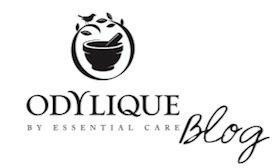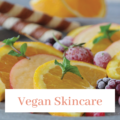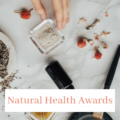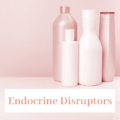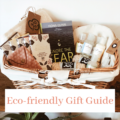Cruelty Free Cosmetics – Why Odylique Will Always Be Cruelty Free!

Sadly, it’s common practice for animals to be used in the testing of products such as pharmaceuticals, cosmetics and in other experiments – even in the testing of the toxicity of car fumes! As many as 115 million animals are deliberately harmed and often killed in experiments every year and the UK is one of the worst offenders. We write about why we think cosmetics should be cruelty free.
Which Animals Are Tested On?
Dogs, cats, birds, mice, rats, monkeys, horses and sheep are some of the most common animals tested on in the UK. In 2016, a large proportion of tests were based on a substance’s likelihood to cause a reaction, such as eye irritation, skin irritation and lethal toxicity tests – a heartbreaking existence for the animals that have to endure this for us.
Sourcing ingredients that are entirely cruelty free is an absolute necessity at Odylique. We want to protect the lives of animals and don’t believe they should be taken advantage of, especially in the name of beauty.
As a nation of animal lovers, we’re certain that if more people knew what was happening to the creatures we love (many like the pets in our homes) the companies that advocate these practices would no longer be in business.
What Is The Cruelty Free Alternative?
The halting of animal testing doesn’t mean experimentation needs to stop altogether. In fact, the practice of testing on animals is carried out more because of tradition rather than reason.
Alternative methods of testing are often more effective because animals don’t always react in the same way a human would.
For example, Cruelty Free International states that ‘crude skin allergy tests in guinea pigs only predict human reactions 72% of the time. But a combination of chemistry and cell-based alternative methods has been shown to accurately predict human reactions 90% of the time’.
Advances in technology now allow scientists to test on materials that mimic human tissues giving more accurate results than an animal’s reaction ever would!
Cruelty Free Cosmetics In Europe
 Mercifully, recent European legislation brought the era of lawful animal testing on cosmetics to a close. It is illegal to test either finished cosmetic products or their ingredients on animals.
Mercifully, recent European legislation brought the era of lawful animal testing on cosmetics to a close. It is illegal to test either finished cosmetic products or their ingredients on animals.
However, one issue that is still perhaps a concern, even though it is arguably not as large an ethical issue. While testing on live animals will be banned in the EU, living creatures can still be killed or maimed in order to be used as cosmetic ingredients. Which begs the question – is it really cruelty free?
Animal glycerine in soap is one example of this. In makeup products, carmine or cochineal (crushed beetles) is widely used as a red colouring, even in natural cosmetics. Likewise Serica or silk (ground up silkworm cocoons) is a common filler in cosmetics products (often used in mascaras and eyeshadows).
There are ample cruelty-free cosmetic ingredients that perform just as well as those derived from animals. To be absolutely sure that your skincare and makeup is cruelty free, choose Soil Association certified health and beauty products as their organic standards ban cruelty in cosmetics on any level.
Selling In China
 Unfortunately, ‘cruelty free’ has become more of a trend, with companies claiming they don’t test on animals to ensure they look like they’re doing the right thing. This leaves more work for consumers to investigate whether the brands they’re buying from are as ethical as they’re making themselves out to be.
Unfortunately, ‘cruelty free’ has become more of a trend, with companies claiming they don’t test on animals to ensure they look like they’re doing the right thing. This leaves more work for consumers to investigate whether the brands they’re buying from are as ethical as they’re making themselves out to be.
Many ‘cruelty free’ brands in the UK are just that – cruelty free when it comes to selling in the UK. However, if these same companies are selling their products in China, they will have had to test on animals at some point.
What’s going on? China stands out as the only major country worldwide that insists on cosmetics products being tested on animals. A European Union law on animal testing came into force, which bans animal testing on all new cosmetics, and their ingredients sold in the EU. But that doesn’t necessarily mean that what’s already on the shelves in Europe isn’t tested on animals. Major skin care brands that sell in China can get around this because they ‘have to’ test on animals to satisfy Chinese authorities.
How We Test Our Products

We only test our products on a panel of very willing human volunteers.
One of the best things about our ingredients is that we’ve selected them based on their gentle, skin-nourishing properties. They’re 100% natural and if an organic option is available, we will always use it, but never at the expense of anyone else (including our furry friends)!
Our aim from the beginning has been to produce the best skincare for sensitive skin, meaning there isn’t much of a risk for our participants either!
What You Can Do
Whenever you can, opt for products that display a genuine, independently certified cruelty free logo (such as the one from PETA or Cruelty Free International, featured below) and do some investigating of the company before you buy (to check if they sell in China and where they stand morally overall)!

Buying organic products can also benefit animals, helping to eliminate the use of synthetic pesticides. Not only are pesticides are designed to kill off “pests”; they have a wider environmental impact. Pesticides don’t just sit on the crops they’re sprayed on; in fact, over 98% of pesticides end up elsewhere[1] (such as in surrounding areas and waterways) where wildlife can suffer the consequences of consuming them, themselves.
Finally, organizations such as PETA and Cruelty Free International are a great place to go to help raise awareness, to be a voice for those who don’t have one and are working to bring a stop to animal testing forever.
Want To Try Our Products?
We only source the kindest ingredients from trusted suppliers who don’t practice unethical or cruel methods of farming, which is why we are able to label every single one of our products cruelty free!
Use code: CrueltyFree20 at the checkout for 20% off your order! – *Limited to one use per customer*
SHOP OUR FULL CRUELTY_FREE RANGE
We also offer a wide range of samples for those of you that would rather try a smaller quantity before purchasing the full item!
SHOP SAMPLES
[1] George Tyler Miller (1 January 2004). Sustaining the Earth: An Integrated Approach. Thomson/Brooks/Cole. pp. 211–216.
What is Dandruff? How To Beat A Flaky Scalp Naturally.

You take care of your hair; you wash it regularly,…
